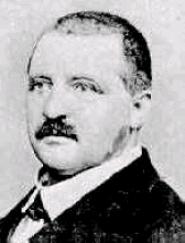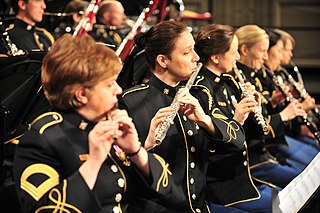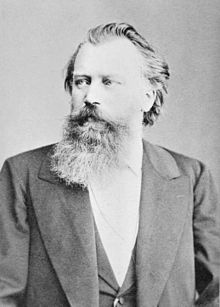
A cantata is a vocal composition with an instrumental accompaniment, typically in several movements, often involving a choir.

Sofia Asgatovna Gubaidulina is a Soviet-Russian composer and an established international figure. Major orchestras around the world have commissioned and performed her works. She is considered one of the foremost Russian composers of the second half of the 20th century along with Alfred Schnittke and Edison Denisov.

The Seven Early Songs, are early compositions of Alban Berg, written while he was under the tutelage of Arnold Schoenberg. They are an interesting synthesis combining Berg's heritage of pre-Schoenberg song writing with the rigour and undeniable influence of Schoenberg. The writing very much carries with it the heritage of Richard Strauss, through the expansiveness of gesture and 'opening of new vistas,' and that of Richard Wagner. The songs were first written for a medium voice and piano; the composer himself revised them in 1928 for high voice and orchestra.
The two Serenades, Op. 11 and 16, represent early efforts by Johannes Brahms to write orchestral music. They both date from after the 1856 death of Robert Schumann when Brahms was residing in Detmold and had access to an orchestra.

The Schicksalslied, Op. 54, is an orchestrally accompanied choral setting of a poem written by Friedrich Hölderlin and is one of several major choral works written by Johannes Brahms.

In music, an octet is a musical ensemble consisting of eight instruments or voices, or a musical composition written for such an ensemble.
In music, a nonet is a chamber music composition which requires nine musicians for a performance. The standard nonet scoring is for wind quintet, violin, viola, cello, and double bass, though other combinations are also found. Additionally, the term may apply to a group of nine musicians regardless of whether they are playing chamber music.

Philipp Herschkowitz was a Romanian-born composer and music theorist, pupil of Alban Berg and Anton Webern, who spent 47 years, from 1940 to 1987, in the Soviet Union.

Alban Berg composed his Three Pieces for Orchestra, Op. 6, during 1913 and 1914. They are dedicated to his teacher Arnold Schoenberg. A revised version of the score was published in 1929 by Universal Edition. The first performance of the first two pieces took place in Berlin in 1923, conducted by Anton Webern; the complete work was premiered in Oldenburg in 1930, conducted by Johannes Schüler.

The Mass No. 3 in F minor, WAB 28, is a setting of the mass ordinary for vocal soloists, chorus and orchestra, and organ ad libitum, that Anton Bruckner composed in 1867–1868.
Paul Angerer was an Austrian violist, conductor, composer and radio presenter.

Psalm 146 in A major by Anton Bruckner is a psalm setting for double mixed choir, soloists and orchestra. It is a setting of verses 1 to 11 of a German version of Psalm 147, which is Psalm 146 in the Vulgata.

Carl Ernst Naumann was a German organist, composer, conductor, editor, arranger and musicologist. He is best known now as an arranger and editor of the music of J.S. Bach, Mozart and Mendelssohn. He was a friend of Schumann and Brahms, and conducted the first performance of the latter's Alto Rhapsody in 1870.

The woodwind section, which consists of woodwind instruments, is one of the main sections of an orchestra or concert band. Woodwind sections contain instruments given Hornbostel-Sachs classifications of 421 and 422, but exclude 423

Die Tageszeiten is a choral composition written for male voice choir and orchestra by Richard Strauss (1864–1949), TrV 256, Op. 76. It consists of four movements: "The Morning", "Afternoon Peace", "The Evening" and "The Night". The lyrics are based on four poems of the same names by Joseph Eichendorff (1788–1857) from his collection Wanderlieder. The work was premiered on 21 July 1928 with the Wiener Schubertbund and the Vienna Philharmonic as part of the Schubert centenary.

Friedrich Schenker was a German avant-garde composer and trombone player.











